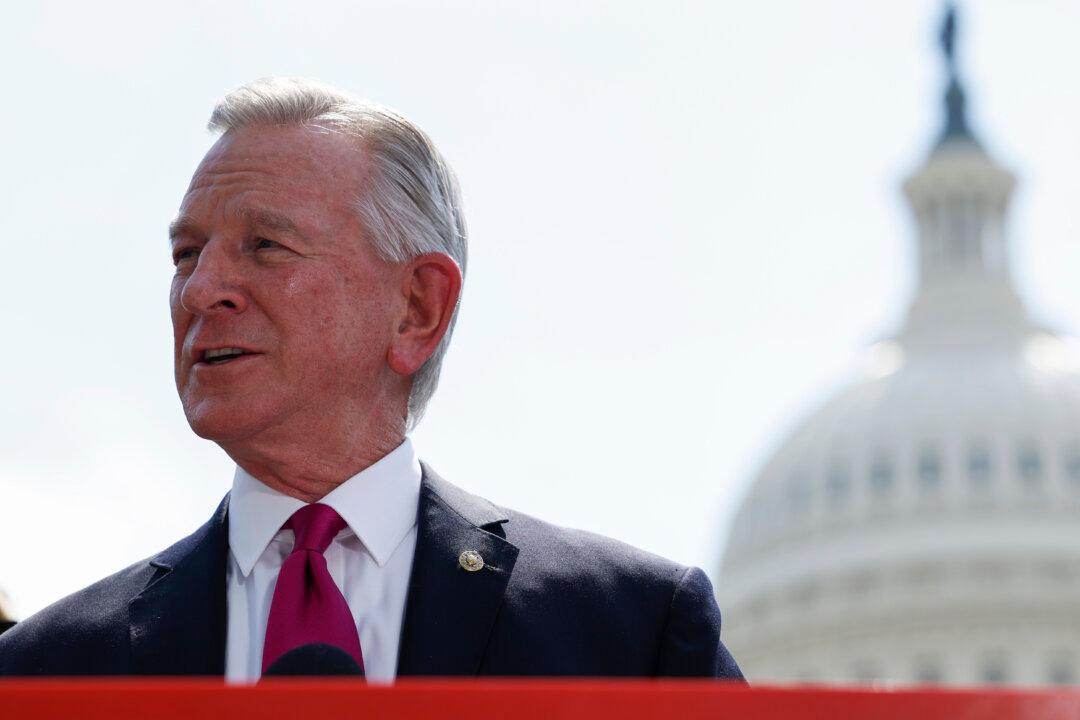The U.S. Senate passed a bill on Thursday that would grant pay back to military officers whose promotions had been delayed for months due to Sen. Tommy Tuberville’s (R-Ala.) unprecedented legislative blockade.
The bill, proposed by Sens. Mike Rounds (R-S.D.) and Joe Manchin (D-W.Va.), was unanimously passed on Dec. 14. This passage came after Mr. Tuberville dropped his blockade of military promotions on Dec. 5.





